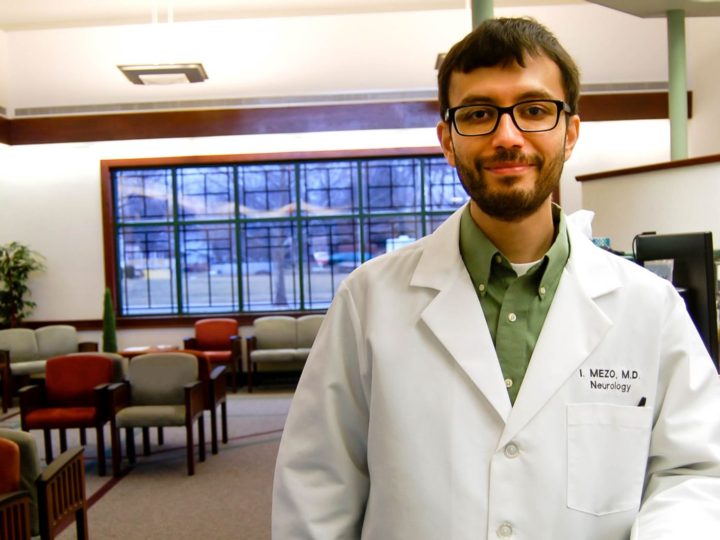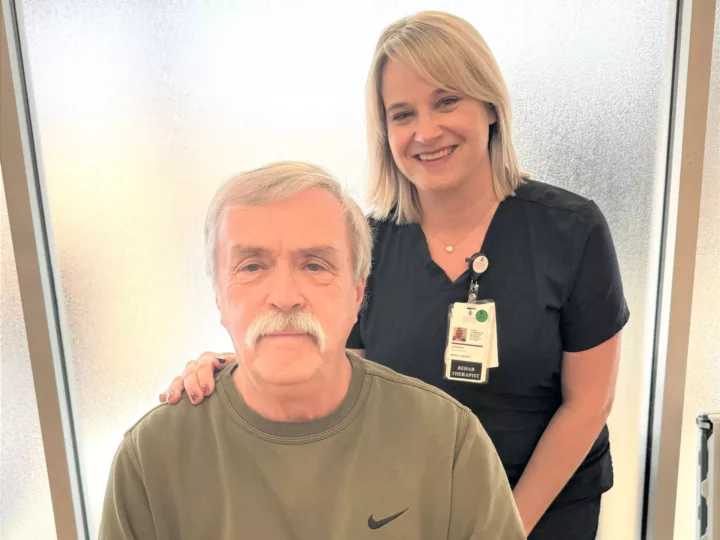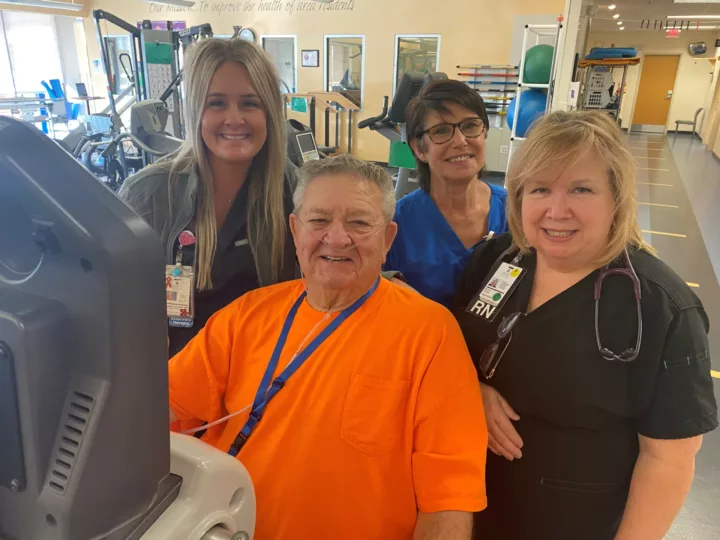Life is Better After Knee Replacement Surgery
 “Oskee-Wow-Wow, Illinois, our eyes are all on you. Oskee-Wow-Wow, Illinois, wave your orange and your blue! Rah! Rah!”
“Oskee-Wow-Wow, Illinois, our eyes are all on you. Oskee-Wow-Wow, Illinois, wave your orange and your blue! Rah! Rah!”
For rural Morris resident Deborah Baker, nothing brings more joy than cheering on the University of Illinois Fighting Illini with her husband and three sons who are all alumni. As a football and basketball season ticket holder, Deb and her family attend as many home games as possible each season.
But Deb’s game day excitement was dampened when she realized she could no longer navigate the stadium or climb the stairs to her seat due to chronic knee pain that had impacted her life for nearly a decade. After nine years of conservative pain management, Deb decided it was time to take her life back by undergoing knee replacement surgery.
“I had known for many years that knee replacement surgery was necessary, but I always said I was too busy to take time off work to get it done,” she recalls. “It wasn’t until I visited the Morris Hospital Orthopedics & Sports Medicine office earlier this year for an injection with Dr. Stephen Treacy that he commented on how bad my leg looked as I walked.”
Dr. Treacy referred Deb to Dr. Ahmed Eldib, a fellowship-trained orthopedic surgeon with Morris Hospital Orthopedics & Sports Medicine who has specialized training in Mako Robotic-Arm Assisted Surgery for total hip and knee procedures.
From her very first appointment, Deb says Dr. Eldib’s thoroughness and patience put her at ease. “I felt very comfortable with Dr. Eldib because he always took the time to explain everything in detail,” she says. “He never hesitated to answer my questions, and I always left my appointments feeling informed and reassured.”
As they developed a surgical plan, it became clear that Deb was a candidate for robotic arm-assisted surgery. Years earlier, Deb had a heart defibrillator implanted, which meant she could not undergo MRI scans. Instead, the Mako system relies on computed tomography (CT) scans to create precise imaging of the knee. Dr. Eldib used this data to craft a customized surgical plan designed to minimize incisions and speed up recovery.
When Deb first heard about robotic arm-assisted surgery, she was intrigued and eager to learn more. “I did in-depth research and quickly realized that the robotic technology assists surgeons; it doesn’t replace them,” she explains. Hearing about positive outcomes from friends who had similar surgeries added to her confidence.
During the procedure, Dr. Eldib successfully replaced Deb’s knee using the Mako robotic-arm system. Deb says the most nerve-wracking moment was taking her first steps on her new knee just hours after surgery. But her fears were quickly replaced by relief.
“When I took my first steps, I couldn’t believe how much better I was walking so soon after surgery,” she says. “My husband even commented how straight my leg looked and how normal my walking seemed.”
After being discharged, Deb’s first challenge was the three stairs leading into her house. With only her husband’s arm for support, she managed them easily, a moment of relief she had not felt in years.
“When I went up those stairs so easily after just two days, I knew things were going to be so much better,” she says. Her successes continued into physical therapy where her walker became an accessory she carried instead of used.
“We used to laugh because I’d carry my walker into therapy—I didn’t feel like I needed it,” Deb shares.
Today, Deb has returned to doing what she loves. She happily attended Illini football games during the 2024 season and is eagerly gearing up for basketball season. Her advice to anyone hesitant about knee replacement surgery is straightforward: “Do it.”
“If you’re living with chronic pain like I was, please know that you don’t have to. For nine years, my pain kept me up at night and impacted my daily life. I am living proof that knee replacement surgery works. I am so thankful to Dr. Eldib for giving me my life back.”
At Morris Hospital, Mako Robotic Arm Assisted Surgery may be an option for total hip, total knee, or partial knee replacement surgeries.




